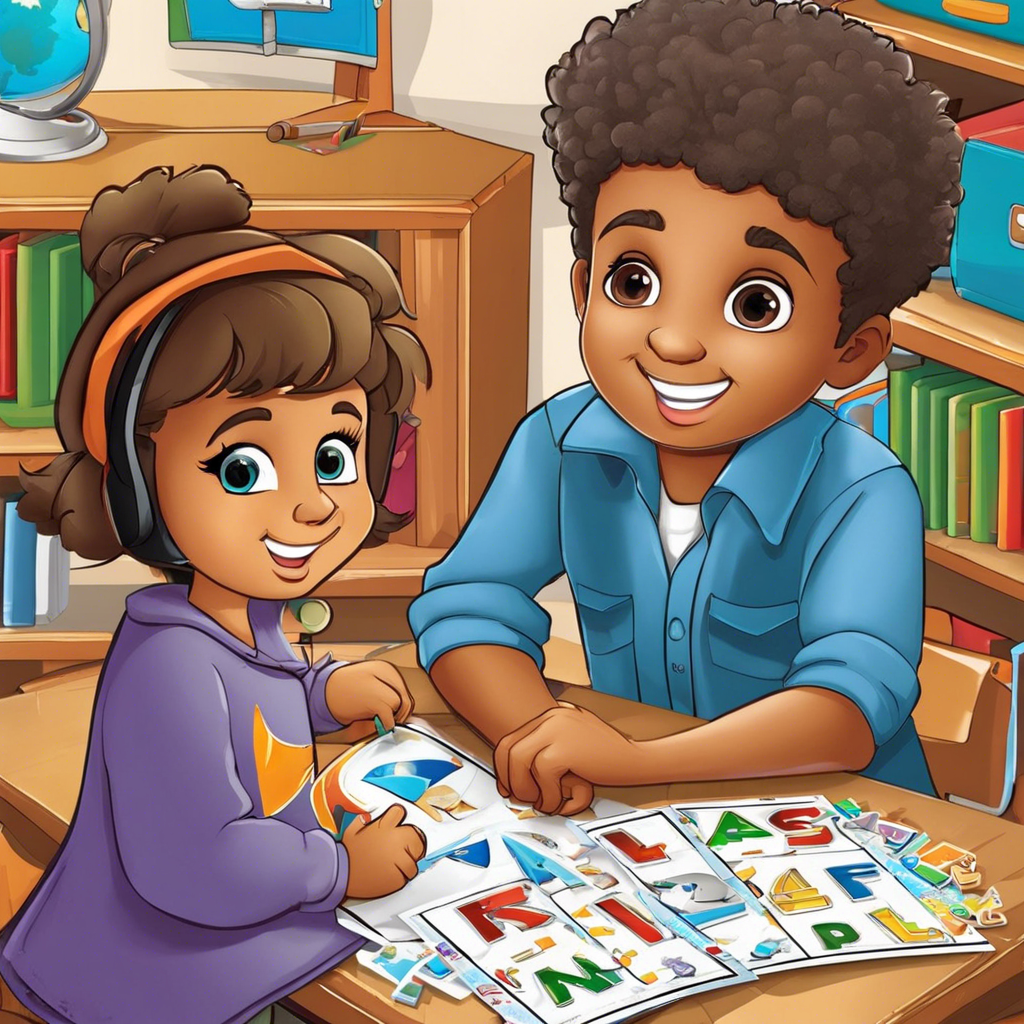In today’s world, education is undergoing a significant transformation, with a growing emphasis on interactive and engaging learning experiences. Among the various tools in educators’ arsenals, educational games are taking center stage as powerful catalysts for student development. These games go beyond traditional teaching methods, providing an immersive and fun way to learn. This article explores the pivotal role of educational games in sharpening problem-solving skills, fostering critical thinking, and preparing students for the challenges of the modern world.
The Power of Educational Games in Learning
Educational games are not just a recent fad but a proven method of teaching that dates back to ancient civilizations, which used games to teach various skills. The modern educational landscape is increasingly recognizing the value of these games as essential tools for student success. By combining learning with play, these games create a high-impact learning environment that encourages active participation and deep engagement.
A study by the Child Trends organization, for instance, highlights the positive impact of educational games on children’s cognitive development and their ability to enhance problem-solving skills.
Fostering Critical Thinking and Problem-Solving Skills
At the heart of educational games is the development of critical thinking and problem-solving abilities. These games are strategically designed to present players with challenges that require strategic thinking and decision-making skills. This approach mirrors real-world scenarios, preparing students to tackle complex problems with confidence.
The Role of Problem-Solving in Education
Problem-solving skills are essential for success in various fields. Educational games provide a safe environment for students to experiment, make mistakes, and learn from them. They teach students to analyze problems, devise solutions, and adapt to changing circumstances. This process nurtures resilience and encourages a growth mindset, essential traits for lifelong learning.
Benefits of Educational Games in Problem-Solving
- Encourages active learning: Educational games require active participation, fostering a deeper understanding of concepts.
- Promotes critical thinking: Games challenge students to think critically, analyze situations, and make informed decisions.
- Enhances creativity: Open-ended games encourage creative thinking and problem-solving approaches.
- Provides immediate feedback: Many educational games offer instant feedback, allowing students to learn from their mistakes and adjust strategies.
Game-Based Learning: A New Paradigm
What is Game-Based Learning?
Game-based learning is an approach that integrates gaming principles into the learning process. It involves the use of games, simulations, and interactive challenges to engage students and enhance their understanding of various subjects. This method has gained traction in recent years, with educators recognizing its ability to make learning more interactive and enjoyable.
The Role of Educational Games in Game-Based Learning
In the context of game-based learning, educational games play a pivotal role. They provide a structured yet fun environment for students to apply their knowledge and skills. For example, games like Minecraft Education Edition and Kahoot! are widely used to teach subjects ranging from math and science to history and language arts. These games not only make learning fun but also encourage collaboration and foster a positive attitude towards learning.
Real-World Applications and Success Stories
The effectiveness of educational games in developing problem-solving skills is evident in various real-world applications. Many successful educational games have been adopted by schools and institutions, demonstrating significant improvements in student learning outcomes.
One notable example is the game Math Play, which provides a vast collection of math games for various grade levels. These games, designed to be engaging and interactive, have shown remarkable results in improving students’ math skills. Another success story is BrainPOP, an educational platform that uses animated movies and interactive quizzes to teach various subjects. BrainPOP has been widely adopted in schools, contributing to improved student engagement and learning outcomes.
Frequently Asked Questions
Are educational games suitable for all age groups?
Yes, educational games are designed for learners of all ages. From preschoolers to adults, there are educational games tailored to different age groups and learning levels.
How can parents and educators choose the right educational games for students?
When selecting educational games, consider factors such as age appropriateness, learning objectives, and the game’s overall quality. Look for games that align with the student’s interests and learning style to ensure engagement and effectiveness.
Can educational games replace traditional teaching methods entirely?
Educational games are not meant to replace traditional teaching methods but to complement them. They provide an additional, interactive way of learning that can reinforce concepts taught in traditional classrooms.
Conclusion
Educational games are powerful tools for the development of problem-solving skills in students. By merging learning with play, these games create an engaging and interactive learning environment. This method encourages critical thinking, creativity, and collaboration, essential skills for success in the modern world. The success stories and results speak for themselves, as more and more educators embrace the potential of educational games in transforming the learning experience.
Recommended External Links
1. Edutopia: Game-Based Learning as Professional Development
2. Edutopia: Using Games to Teach 21st Century Skills
3. Minecraft Education Edition
